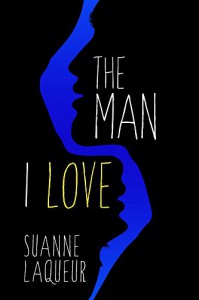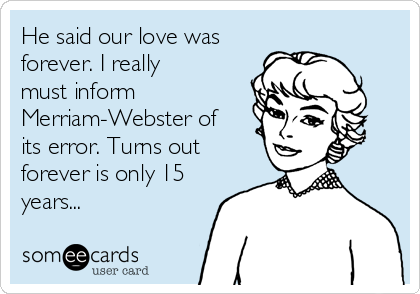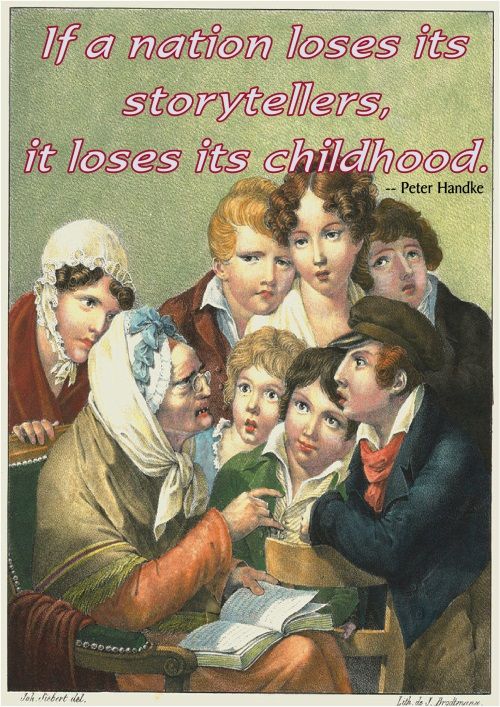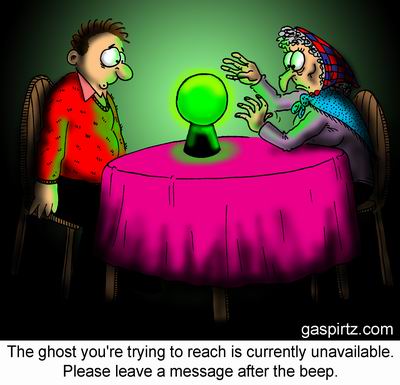Lit Lovers Lane
Inveterate, incurable readaholic, who blogs about books and what's in 'em. If readaholism is a deadly disease, no problem. Couldn't imagine a better way to go.
The Secret Paris Cinema Club

Original LLL Quickie Review @ www.LitLoversLane.com
How I got between its sheets: a Christmas present.
What stimulated me:
-- Setting: Paris – the City of Lights seems magical and irresistible in the author’s hands, and even though I have been there and was underwhelmed, this story had me wanting to go back and give it another go.
-- Setting: Cinema Paradis – a vintage movie theater of a bygone era showing love films and bring together a motley, but lovable group of people from the employees to the patrons. Great idea.
-- The integration of films and their stories into the narrative and a nice list of to-see movies.
-- Supporting characters – from Robert, Alain’s philandering professor friend to Allan Wood, the movie director with his own story, the supporting characters gave the story more punch.
What didn’t exactly thrill me:
-- The story was a sweet one, and while its resolution is not necessarily predictable, it is just a tad too pat.
What turned me off:
-- Alain’s character – while I welcomed the idea of a romance from the male point of view, I kept feeling Alain was merely dubbed a man, but read like a female character.
15 Words You Didn’t Realize Come From Books
Thanks to Bookish Quotes for posting this....

 1
1
The Spirit Guide is a Beautiful Historical Romance

For a variety of reasons, I accept very few review requests, but when author Elizabeth Davies offered me The Spirit Guide , I could not resist its promise of history, romance, and otherworldliness. My instincts served me well. I finished this book in the flash of an eye, as the story and its characters pulled me in from the very first page, and never set me free until the very end.
It’s no secret I love history, and British history is probably my favorite. This story begins in the midst of the death and destruction of war. Hey, it’s British history…nothing unexpected there. But what is unexpected is that as Seren tends to the wounded and dying soldiers, all around her she sees the spirits of those who’ve succumbed to their injuries.
Now, I am not really a paranormal kind of girl, especially when things start getting too out there. What I loved about The Spirit Guide was its believability…its almost normal, natural world feel. Set amidst the fear of witches and Black Magic, Seren and her powers fit, feel possible, rather than feeling fantastical and freakish. As with all paranormal, it does call for a suspension of belief in parts, but it wasn’t too much of stretch for me.
While its heart is a love story, this book is much more…the story of a woman locked in a loveless marriage, who views her gift as a curse, who is afraid to be herself, and who must make a life under difficult circumstances feeling she has no control. For all that Seren lives in the 12th century, she and some of the themes speak to modern life.
Ms. Davies’ characters are vivid, alive, and robust. Her writing paints them with feeling and multi-dimensionality. I particularly appreciated being kept guessing about Vaughan, Seren’s father-in-law. Is he evil incarnate…or not?, I kept pondering. From Vaughan, to Seren’s husband, to her husband’s mistress: all had layers which made the story intriguing and kept me wondering.
There really is nothing not to like about this read, but I will mention two slight disappointments. My first wish for this book would have been to learn more about Vaughan and his past. Because he was such a dichotomy and so central to the story, once I finished the book, I found myself pondering what made him as he was and what was his end game? What did he hope to achieve finally?
And, my second wish for the book? Head on over to the companion post What’s in a Name? to find out.
Still, these insignificances did almost nothing to dim my happiness while reading this book. I loved it.
The Man I Love

Via the book blogging grapevine, this book was on my radar for some time. When author Suanne Laqueur approached me, I was happy to purchase it.
Consequently, my first 2015 read turned out to be a beautifully written Indie affirming my conviction that there are many Indie voices deserving to be heard. With so many aspects ofThe Man I Love to admire, Ms. Laqueur’s voice is indisputably one of them.
First, the story has a timeless theme. Through Erik and Daisy’s story, I re-experienced shades of my own college years, which were…well, let’s just say MANY moons ago. Ms. Laqueur’s writing took me on a magic carpet ride back to my youth, beckoning me to remember and feel anew my own college experiences with friendship and love. Through these two lovers, I felt again the pull, the urgency, the sweetness, the passion, and ultimately, the heartbreak of young love. When a story achieves this, that’s saying something in my book.
The book also speaks to another unfortunate, but increasingly frequent companion to American college life — gun violence. Erik and Daisy’s story, along with that of their circle of friends, shows not only the immediate physical and emotional devastation these events unleash, but also the long-lasting, ever present ghosts that can walk throughout life with victims, tainting every aspect of their lives and relationships, crippling them psychologically and emotionally.
With poignant clarity, the author shows us how one’s seemingly making it through tragedy can be pure illusion. Indeed, Daisy and Erik appear to have come out the other side, if not unscathed at least unbowed. But behind the facade, Ms. Laqueur beautifully unearths the fault lines people often never see in a traumatized person — someone walking around looking fine on the outside, but drowning inside.
Additionally, this read opened up to me a world to which I have no contact: ballet. Don’t get me wrong. You’ll never catch me at a performance. Been there, done that, not my thing. Still, I thoroughly enjoyed being plunged into this world of dancers, teachers, and stage designers and witnessing the dedication, competition, jealousies, dramas, triumphs, and heartbreaks of the profession. I appreciated seeing all that goes into a production.
I also enjoyed eavesdropping on a world where gayness is not just accepted, but understood…where its existence is uncomplicated and normal. Ms. Laqueur wrote characters like Will, Erik’s best friend, with a love, sensitivity, understanding, level of comfort, and humor that most of us can only hope to have.
While there is much to love about The Man I Love, I had some reservations. First, this is a long book…almost 600 pages. While not a problem in and of itself, the book felt unnecessarily long for this storyline. The first half dragged somewhat for me, with the story not really picking up a head of steam and hooking me until quite a long time in.
My other reservation may be more about me than the book actually, but for similar souls, I mention it. I readily admit I’m a cynic…not all soft and gooey on the inside or out. So when a character gets too schmaltzy, overly dramatic, intense, and downtrodden about love for too long, frankly I want to slap the person and yell Snap out of it! I felt like this about Erik both during and after the breakup. Yes, I readily admit love and love lost can really do a number, on young people especially, for a very long time. Still, I got exasperated with him.
In the end, this is an absorbing debut work by a new author I look forward to watching in future.
 1
1
The Battle for Christmas

How I ended up between its sheets: When Book Riot asked readers what they were reading for Christmas, it got me thinking. While I normally don’t read anything different than normal during the holiday season, I decided to change that. After a bit of research, I settled on this history of American Christmas.
What stimulated me:
- I love history and I seem to have inherited my grandmother’s Christmas freak gene, so a book combining the two is a no-brainer.
- The clear, detailed explanation of the holiday’s evolution and how our modern Christmas came to be so.
- This read contains tidbits about Christmas that most never knew and couldn’t imagine, e.g., it being outlawed by the Puritans, its former carnival-like atmosphere, the connection between it and charity, its original focus (hint: not children or family), origins of its commercialization.
- Covers varying traditions in several parts of the country: New England, Pennsylvania, New York, Virginia, and the South.
- Reprints of earliest Christmas illustrations
What turned me off:
- This is a scholarly work, which I liked, but sometimes the level of detail, number of examples, and constant citing of historical documents became a bit tedious. In truth, I skimmed over some parts.
Final Thoughts: This is a fascinating book, but it’s definitely not for everyone. Given its academic bent, it is dense reading that for some will be way more than they ever wanted to know about Christmas. Too, it may not necessarily put one in the Christmas mood, if that is the aim. On the other hand, if one wants to see exactly how Christmas in the U.S. came to be what it is, this book is the ticket.
Indie and Small Press Author Blog Hop

Welcome to the Indie and Small Press Author Blog Hop, hosted by The Bookbinder’s Daughter and author Harry Patz to help Indie and Small Press authors gain some attention for their books, past or present.
Being a self-pubbed author myself (humorous travel memoir Doing Italians…oops…Italy), I know how hard it is to get even great indie books out there and noticed. I am embarrassed to say I basically gave up even though I truly believe in my work.
Still, Lit Lovers Lane is eager to aid other authors who haven’t thrown in the towel to get the recognition they deserve, so we will be giving away a $15 Amazon Gift Card. To participate, follow the instructions below.

Visit Lit Lovers Lane to participate, and also to discover other great Indie authors and book bloggers, as well as enter more giveaways.
The Girl With No Shadow (Chocolat, #2)

Original Review @ Lit Lovers Lane
How I ended up between its sheets: My friend loaned me a book that turned out to be not just the 2nd, but the 3rd in author Joanne Harris’ Chocolat series. That was too much for me to take, so I bought the first two.
What stimulated me:
- The continuation of Vianne’s story.
- The themes: fear which leads to half lives, conformity which leads to half selves, family which is by choice not blood.
- The book is not simply a Chocolat rehash, but has a completely different, darker feel. I really appreciate the risk author Joanne Harris took.
- More about Vianne’s past is revealed.
- Like Chocolat, the story is told in alternating voices. This time it’s Vianne, Anouk, and Zozie. I like these different perspectives.
- The magic is more out there and explicit in this book rather than merely alluded to.
What turned me off (but only the teeniest bit):
- Vianne’s complete and prolonged loss of vitality, colors, and sunny personality. I kept mentally slapping her upside the head and yelling, “Snap out of it!”
- The locals were not as full-bodied, quirky, and likable as inChocolat’s Lansquenet.
- Would have liked Zozie’s evil to have unfolded naturally rather than knowing from book blurb her true nature.
- Alternating story voices were sometimes confusing as to who was narrating.
- The middle of the book dragged a bit.
Love Is a Many Splendored Thing -- Until It's Not

When the family breadwinner leaves in The Three Weissmanns of Westport, he doesn’t check into the Wooden Waldorf. No. Wealthy Joseph Weissmann doesn’t have the good grace to die. Instead, he abandons Betty, his wife of more than 50 years, for a woman half his age.
Now, while some may be scandalized by this, not me. I say if the old coot (or anyone really) wasn’t happy in his marriage, better to get out than make his wife miserable, too. Better to leave than live a lie. REALLY better to get out than bring his wife home an unwelcome gift. Let’s just call that gift what kids might…cooties. ![]()
Nope, if a marriage isn’t working, I say put that puppy to sleep and move on. Everyone will be better off. Better off as long as the breadwinner leaves the stay-at-home partner financially well enough off to live. Not only did Joseph not do this, but he put the financial screws to Betty, eventually forcing her to leave her home and rely on the kindness of relatives.
And this is where I have a problem, not just with Joseph, but with Betty and anyone like her. Actually, Betty may be forgiven. At 75 years old, she comes from a different era. Still, there are countless woman today making the same ill-considered choices Betty did.

Making the choice to stay home and raise their children, with seemingly not a care in the world about their future. They are oh-so sure their marriage is forever. Certain their husband will never leave. Sure they will not want to get the hell out of dodge themselves, but be stuck. Absolutely convinced their love is a many splendored thing that will last a lifetime.
Meanwhile, the divorce rate in the U.S. is almost 50 percent, and the financial losers in a divorce are almost always women and children.
I am not a financial planner, and I do not pretend to know the financial ins and outs of what a stay-at-home spouse should do, but I do know it is more than live in LaLa Land.
In the online article A Man Is Not a Financial Plan, Especially After Divorce, divorce support expert Cathy Meyer gives some excellent advice, such as having one’s own bank account and credit card, staying in touch with former business colleagues, or working part-time when the kids are school age.
No, I am not a financial expert, but I have seen enough in life with my own mother and friends to know that any couple where one is a stay-at-home spouse (male or female) needs to either do some research on their own, or consult a financial expert, and have a plan. And it should be sooner rather than later.
What do you think?
Just Read the Original...Sense and Sensibility

This was a library find that looked to be a fun read, so I grabbed it. The Three Weissmanns of Westport, author Cathleen Schine’s tribute to Jane Austen’s Sense and Sensibility, takes the story of a recently widowed mother and her young daughters being tossed out of their home in 18th-century England and fast forwards and morphs it into a 21st-century divorce, American-style.
Taken completely on its own The Three Weissmanns is a somewhat fun and witty look at the demise of a marriage and its ripple effects on the entire family. However, juxtaposed against Austen’s classic, two things struck me: 1) how far women’s lives have evolved in autonomy and independence, but 2) how little women’s emotional independence appears to have evolved in the same time period.
Certainly, the premise of this story is a tempting one – the wealthy husband of a long-married couple tosses his wife from their home and puts the financial screws on her after he falls in love with a younger woman. With her grown daughters also facing financial ruin, the three women accept a relative’s offer of a beach cottage, where they go to regroup and find new lives and loves amidst Westport high society. I really wanted to love this book, but in the end, I can only say I mildly liked it.
What resonated was the story of Betty and Joseph, an older couple that still like each other, but have grown apart. This is the story of many couples and what can happen, especially to the wife when she’s never worked. Though I wanted to brain him, I understood Joseph’s delusion that he could recapture his youth with a younger woman. I liked Betty’s plucky attitude – she is miserable, but determined to stay optimistic, even if she has to convince herself she’s a widow. Also authentic and poignant is the story of Joseph’s changed relationship with his daughters.
What I didn’t care for so much are daughters Annie and Miranda’s stories. Both are around 50 years old, and pretty much dumb as a box of rocks when it comes to love. Annie moons over author Frederick, who’s ruled by his adult children who hate Annie. And, Miranda falls for Kit, a young divorced actor with a child. Schine keeps the reader wondering about the two men’s intentions, but sometimes I felt she kept me wondering too much — so much so that I found neither love affair particularly exciting or interesting. Then, there is the elderly lawyer Roberts, who supposedly loves Miranda, but his story is so cagey and oddly developed, one really doesn’t know.
Additionally, I had some rather sizable beefs with parts of the storyline. First, there are a couple of pivotal chance encounters which bring out key information, but the encounters are downright implausible. They simply are beyond the bounds of belief, making me wonder how how an editor let them through. Secondly, Miranda’s story has a huge twist in the end which I simply do not buy, given she’s a woman of almost 50.
Still, another point in this book’s favor is the highlighting of the schizophrenia of women’s lives even 200 years after Jane Austen’s work. Schine’s work shows both how far women have come, and how much is still the same. Certainly, Annie and Miranda are independent women with careers of their own and the ability to chart their own course without men at the helm. This is heartening. What is sad is that their attitudes to love are pretty much stuck in the 18th-century, with both women mooning over men like lovesick cows and pretty much pinning their happiness on men. What is even sadder is that it’s true of most women today.
And then, there’s poor Betty – always a stay-at-home mom, and even though wealthy, Joseph is able to bring her to the brink of financial ruin unless she buckles under to his terms even in this day and age. These issues are still societal problems and Schine’s shining a light on them is important.
This was a very hard book for me to rate, but in the end, it was not nearly as promising as I had hoped.
Chocolat Quickie Review

How I got between its sheets: When a friend loaned me what I found out was a sequel to this book, simply had to purchase the first one with my persnickety self.
What stimulated me:
• The setting – provincial French village of Lansquenet and Vianne’s chocolate shop seem back in time and fairytale-like, though the story is contemporary.
• Writing style – Ms. Harris’ style is evocative, hypnotic. She pulls one into this sad little town and the chocolate shop, the reader becoming a fly on the wall with all senses awakened.
• Potpourri of quirky characters – Sensual, breath-of-fresh-air Vianne; zealot priest Père Renaud; wise woman Armande Voizin and her town snob daughter Caro Clairmont; klepto Joséphine Muscat; and sexy Roma/Gypsy Luc and his cohorts.
• Story – sweet tale of small town constrictions and societal pressure, individuality, and tolerance.
• A world of comforting chocolate – creamy hot chocolate, Venus’ nipples, candied rose petals, chocolate seashells, truffles, pralines, hazelnut clusters. Who doesn’t love chocolate?
• Dash of magic strewn like candy sprinkles atop the story.
What turned me off:
• It took me quite a while into the book to distinguish all the characters.
• It ended. Luckily, the sequel awaits me.
Got Totally Lost in My Father's Paradise (in a good way)

Call me ignorant, but I hadn’t a clue there had been Kurdish Jews in Iraq, much less Jews considered part of Lost Tribes of Israel and speak the language of Jesus Christ. Thank you to My Father’s Paradise for curing that ignorance and for so much more. I loved this book in which author Ariel Sabar marries history, biography, memoir, and even throws in a little linguistics (my true love) to boot.
Chronicling his attempt to connect with his father Yona, Sabar transports the reader to early 20th-century Iraq, where Muslims, Christians, and Jews live together peacefully in isolated Kurdistan. (Isn’t that a concept?) A consummate storyteller, he weaves together a narrative on the history of Kurdish Jews, their everyday lives, and the hardships and triumphs of his father’s family – a narrative that reads as beautifully as any novel.
Totally riveted, I found myself feeling disappointed when the family emigrated to Israel, but I shouldn’t have. Reading about Yona family’s adjusting to the struggles of a new life, including prejudice, was equally absorbing. And loving anything to do with linguistics, when Yona began research on his language, Aramaic, I was over the moon with each new tidbit about this practically extinct treasure and where it fits into the family of languages.
There is so much more to love about his book, including how the author finally begins to understand and appreciate his father and his history. I can do nothing but give it the highest praise possible. It is beautifully, lovingly written and tells a story I could have kept on reading. This definitely will not be my last read by this author.
To Know or Not to Know
While reading Mr. Penumbra’s 24-Hour Bookstore, I got thinking about life’s secrets, both big and small. Specifically, it made me wonder if I would really want the answers to those unknowns, if it were possible.
A few times in my life, I have consulted psychics, and I actually got some pretty amazing readings. At a psychic fair in NYC, a young man told me he didn’t see children in my future. He was correct.
Another psychic told me my life partner would be a wealthy professor in New York. She saw two women around him, and they were near water.
Years later, I met my current husband…a professor whose only living relatives were his mother and sister living in Bremen, a German port town. His mother actually lived overlooking the Weser River before she died. AND I was told he would be sure of the relationship long before me, which was so true. So, she was pretty accurate.
Okay, she was off by a continent with the NYC part. And, judging by the tiny house with no closet space and our secondhand car, he is by no means wealthy. Correction: not wealthy in terms of money. :-)
Still, did knowing any of this really help me? For sure, I could have done without hearing I would not have children. It depressed me for a while, until I shrugged it off, telling myself the man was a quack.
As for my husband, I guess it felt good thinking someone was in the offing, but it took so many years from the time of her prediction that I actually forgot about it until we were already married, having long ago labeled the poor woman a quack, too.
So, here’s what I would like to know:
If someone could give you accurate answers about your life or the big cosmic questions, would you want to know?
If so, what questions would you ask? Both personal and general...
Which questions would you rather leave unanswered?
Quickie Review: The Elegance of the Hedgehog

How I got between its sheets: Without having heard a thing about it, found it in my local library and couldn't resist the title. Also liked the cover and back cover blurb.
What stimulated me:
- The growth in relationships among Renee, Paloma, and Mr. Ozu
- Interesting ideas the characters ponder, such as the purpose of art, how art is born, or the purpose of grammar
- The moving tale about feeling out of place and unexpected friendships
- The subtle reminder that appearances can be deceiving when it comes to people
- The ending - totally surprising
What turned me off:
- The ponderings sometimes annoyingly interrupt the tale. Had me wondering, "Who thinks these things?"
- Paloma's character with her ultra-mature thoughts and ideas sometimes seem unreal
- Book took longer to get into than would have liked
- The ending - yes, I know it makes no sense to like and not like it, but there it is.






